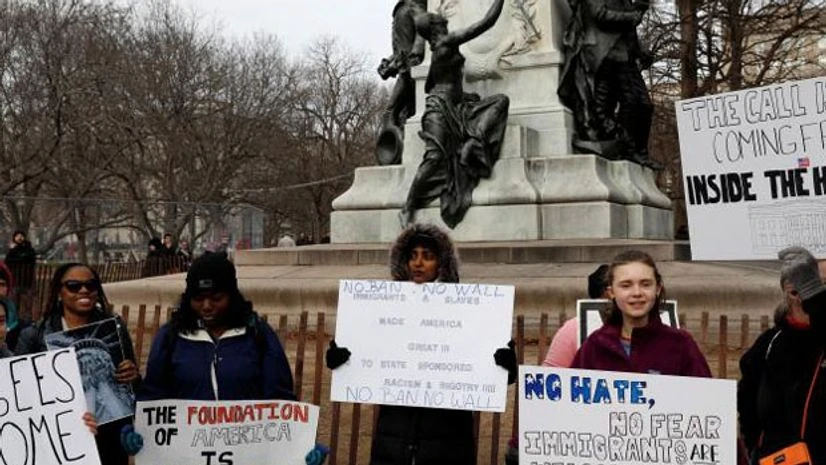US President Donald Trump's curbs on immigration are forcing foreign graduate students and researchers from countries like India, to look for alternative plans for their education and career, including moving to another country, according to a survey report.
When President Trump came out with his initial executive order in January that barred people from seven predominantly Muslim countries from entering the US for 90 days, the foreign graduate students and postdoctoral scholars in America scrambled to figure out how such travel restrictions would affect them.
"The first 24 hours, nobody did any work," says Saghi Saghazadeh, an Iranian postdoctoral scholar at the Harvard Medical School.
More From This Section
"I'm walking on eggshells, and I don't know what's going to happen," Saghazadeh says. "The worst part is that we cannot plan for the future."
Foreign graduate students and postdoctoral scholars whom C&EN spoke with said they are seriously considering leaving the US for countries that have a more welcoming immigration policy.
"I'm questioning staying in America, and I have already started looking through documents for Canada," Saghazadeh says. "I will go to a country where I have to worry less about my life."
It is not just students and postdoctoral scholars from the affected countries who are feeling unsettled, the report said citing an example of a graduate student from India.
The Indian student at Oklahoma State University who came to the US in 2011 says he worries about potential changes that might happen to the process of obtaining an H-1B temporary work visa.
The Indian national did not want his name included out of concern for his career prospects, the report said.
On March 3, the Trump Administration announced suspension of expedited processing of H-1B visas for up to six months. Several bills now in Congress also propose additional changes to the H-1B visa process, widely used by Indian IT firms and professionals.
The number of H-1B visas awarded to researchers in the chemical sciences is already extremely low. In 2015, according to data from the US Citizenship & Immigration Services, initial H-1B petitions approved in occupations in mathematics and physical and life sciences accounted for approximately four per cent of the total approved H-1B petitions. In comparison, 62 per cent of the approved H-1B petitions went to computer-related occupations, the report said.
"If I get a job in the US, I would stay, but if I don't get a job, what am I going to do? I have to plan accordingly," says the Indian national, who is a Oklahoma State graduate student.
"I don't feel secure, and I don't have a clear vision of what's going to happen. I have to look at other options." He says he's looking into opportunities in Australia, New Zealand, Japan, and countries in Europe, as well as prospects back home in India.

)
